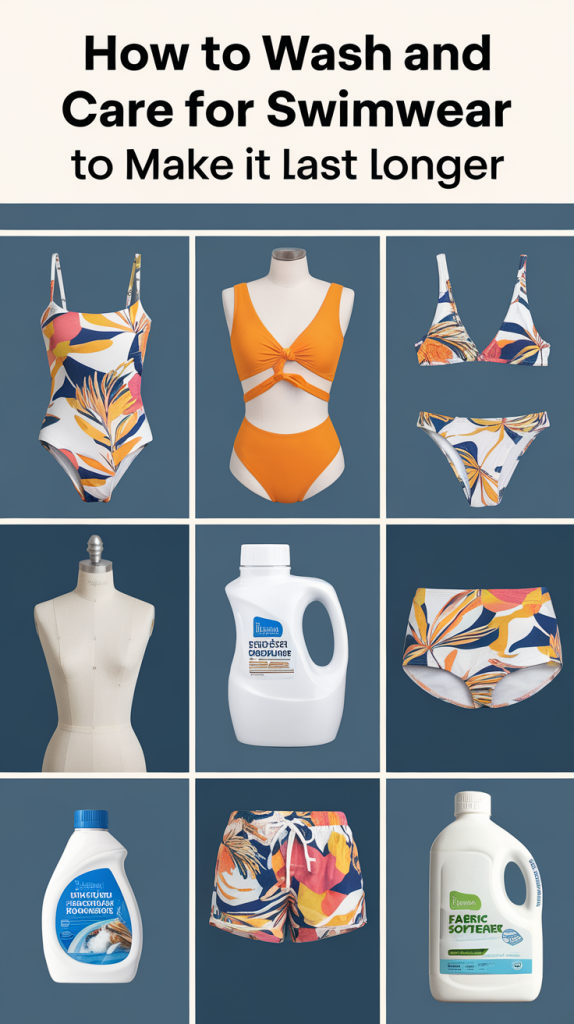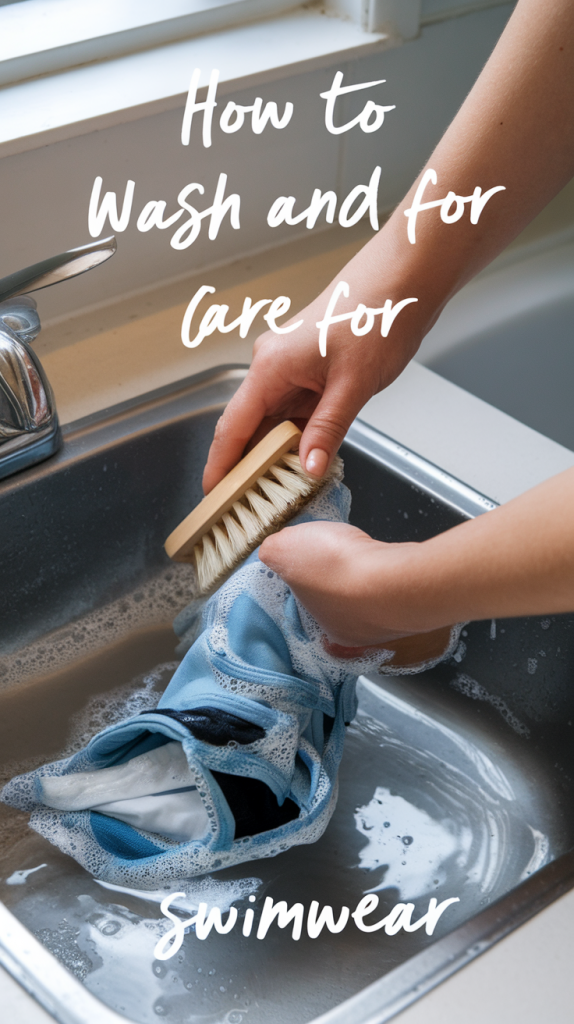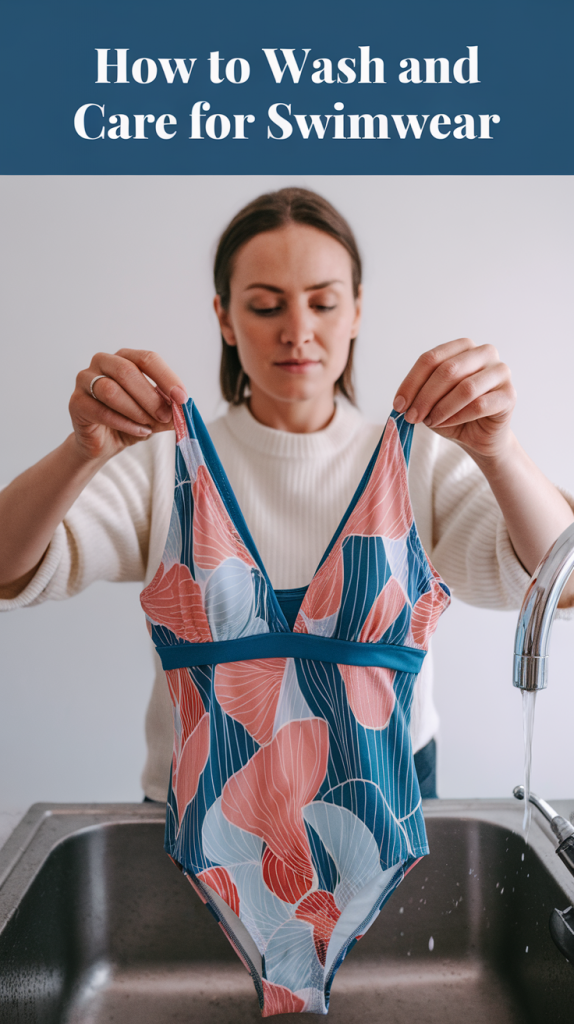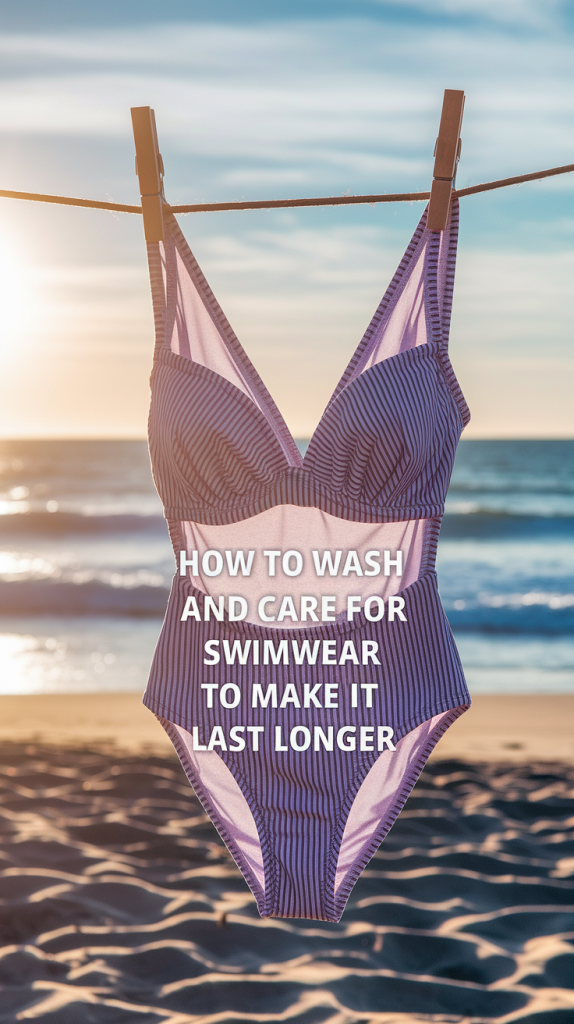How to Wash and Care for Swimwear in 2025: Keep Your Swimsuit Looking New All Season
Most swimsuits wear out in both shape and color during their first season of wearing despite normal usage. The key factor that deteriorates swimwear that lasts less than a season is how we wash and dry them rather than pool or ocean water exposure. The good news? Several basic adjustments in swimwear maintenance habits will stretch the life expectancy of your most loved swimwear pieces.
Swimsuits primarily consist of modern high-tech fabrics, which include Lycra as well as nylon and polyester blends at present. Swimwear components function best when exposed to gentle conditions because heat exposure with harsh detergents along with rubbing easily damages them. The right maintenance will make your swimwear enduring enough to survive summer after summer.
You will learn here the best methods of swimwear care in 2025 along with practical tips through step-by-step instructions along with U.S.-available products. You will discover expert methods that will address the common mistakes you make while learning essential long-term care techniques for your swimwear. This article provides benefits for all beachgoers who enjoy pool visits or plan weekly beach trips.

Why Proper Swimwear Care Matters in 2025
When purchasing a swimsuit, buyers make not just a seasonal choice but they also secure personal comfort and gain increased confidence in themselves. The length of fabric wear value persists in this investment. For most people, not very long. Here’s why that happens.
Sunlight, salt water, chlorine, and body oils, together with sunscreen, can all negatively affect swimwear fibers. Time degrades colors and produces fabric sagging while eliminating elasticity from the material. Using your home washing machine together with tumble dry settings leads to a reduced lifespan of your swimsuit.
The number of U.S. consumers establishing sustainable fashion practices will increase to higher levels during 2025 and swimwear maintenance represents an essential tactic toward this trend. Leaving swimwear in use longer reduces both the waste generated from textile disposal and annual swimming expenses. The smart choice for your money also benefits the earth as a whole.
Your main concern should be finding ways to extend the lifespan of your swimwear despite needing easy washing and drying methods.
Step-by-Step Guide to Washing Swimwear Correctly
What to Do Immediately After Swimming
Freshwater rinsing of your swimsuit should happen as soon as you finish swimming, even if you plan to stay at the site. The fabric remains unharmed because you rinse chlorine along with salt as well as body oils at this stage.
Placing a wet swimsuit in plastic or leaving it in hot car backseats should be avoided at all costs. Bacteria will grow inside moist material while high temperatures force dye bleeding and fabric distortion.
A reusable wet bag combined with a small fresh water bottle will serve you well while you stay near pools or beaches. A little attention to care techniques results in major consequences for swimwear preservation.
Hand Washing vs. Machine Washing: Which Is Better?
The golden rule? Always hand wash when possible. Swimwear is delicate, and hand washing helps maintain its stretch and color.
If you must use a washing machine:
- Use a mesh lingerie bag
- Select the delicate or gentle cycle
- Choose cold water
- Avoid spin cycles
🧺 Tip: Never wash swimwear with jeans, towels, or heavy items that cause friction and pilling.

Safe Detergents for Swimwear in 2025
Skip the standard laundry detergent—it’s too harsh for elastane. Instead, opt for mild, plant-based options with no bleach or brighteners. Below is a comparison of the most swimwear-safe detergents available in the U.S. right now:
| Product | Elastane Safe | Fragrance-Free Option | Price (avg.) |
|---|---|---|---|
| The Laundress Sport | ✅ | ✅ | $19.00 |
| Woolite Delicates | ✅ | ❌ | $6.00 |
| HEX Performance | ✅ | ✅ | $12.50 |
| Eucalan No-Rinse | ✅ | ✅ | $9.00 |
👉 Want an ultra-easy solution? Try no-rinse formulas like Eucalan for hand-washing convenience.
How to Dry Your Swimwear the Right Way
Why Tumble Dryers Are a Big No-No
High heat destroys swimwear faster than any other mistake. Tumble dryers melt elastic fibers, causing your suit to lose shape and structure.
Even if the label says “machine washable,” it rarely means machine dryable. Instead, always air dry your swimwear.
Best Air-Drying Practices
Follow these steps:
- Lay the suit flat on a clean towel
- Dry it in the shade (never in direct sunlight)
- Flip it over once halfway through to avoid mildew
Avoid:
- Hanging swimwear by the straps (it stretches them out)
- Using metal hangers (they may rust and stain)
💡 Still drying suits on a balcony railing or fence? It’s time to upgrade your routine.
How to Store Swimwear in the Off-Season
Prepping Swimwear for Storage
Before you pack away your summer essentials:
- Rinse thoroughly and hand wash
- Dry completely (moisture = mildew)
- Fold gently without creasing cups or wires
Where and How to Store It
The best place to store swimwear is a cool, dry drawer or breathable fabric bin. Avoid vacuum bags, plastic totes, or anywhere exposed to sunlight or humidity.
Use cotton bags for each piece or repurpose pillowcases to keep colors protected and items separated.

Swimwear Care Do’s and Don’ts
Let’s make it simple. Here’s your cheat sheet of best practices:
✅ Do:
- Rinse right after swimming
- Hand wash in cold water
- Use mild, swimwear-safe detergent
- Lay flat to air dry
- Store in breathable containers
❌ Don’t:
- Use bleach or fabric softeners
- Wash with jeans or towels
- Wring out the fabric aggressively
- Use a dryer
- Hang by straps
New Swimwear Care Products Worth Trying in 2025
The U.S. market in 2025 is seeing exciting upgrades in swimwear maintenance. A few examples include:
- Portable ultrasonic cleaners for travel-friendly swimsuit care
- Enzyme sprays that neutralize chlorine and body oils on the spot
- Mesh drying pads with antimicrobial layers for odor prevention
These products are trending not just for performance, but also for eco-conscious living.
Curious to try any of them yourself? Leave a comment and let us know which ones you’d use!
Swimwear Care Checklist for Every Season
Print this out, save it to your Notes app, or stick it on your laundry shelf. Here’s your ultimate care routine:
🗓️ Every Day:
- Rinse with cold water
- Gently squeeze (don’t wring)
🧼 After Every Swim:
- Hand wash with gentle detergent
- Lay flat in shade to dry
📦 Seasonal (End of Summer):
- Wash and dry completely
- Inspect for damage
- Store in cotton bag in cool space
Final Thoughts: Make Your Swimwear Last
Taking care of your swimwear isn’t complicated—it just requires consistency and a little know-how. By rinsing immediately, washing gently, and storing smartly, your favorite swimsuit can stick with you for years, not just a single season.
🔁 Let’s recap the essentials:
- Avoid heat and harsh chemicals
- Wash by hand in cold water
- Use swimwear-safe detergents
- Air dry flat in the shade
- Store in breathable, dry containers
👙 Now it’s your turn — What are your favorite swimwear care tips?

